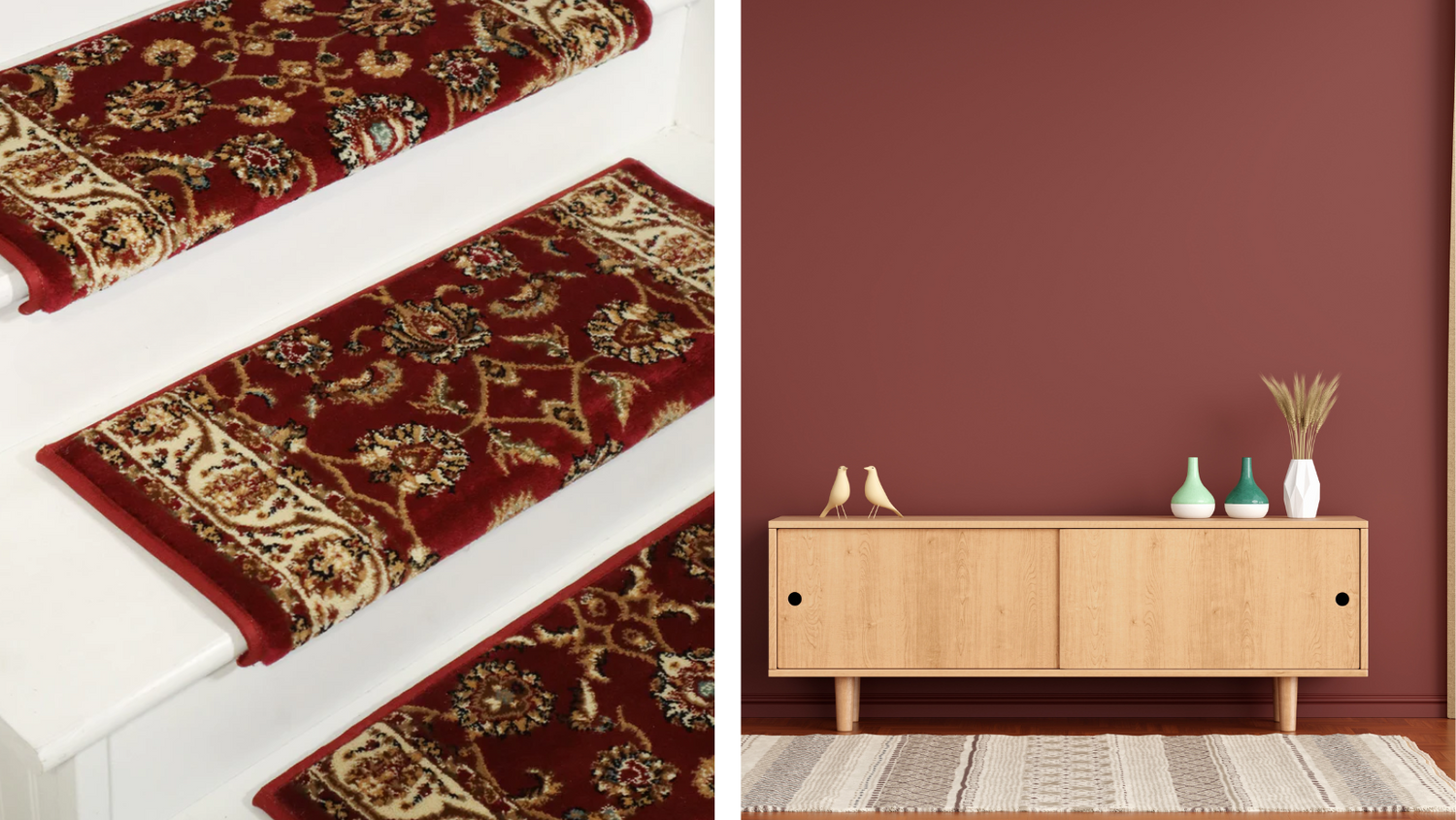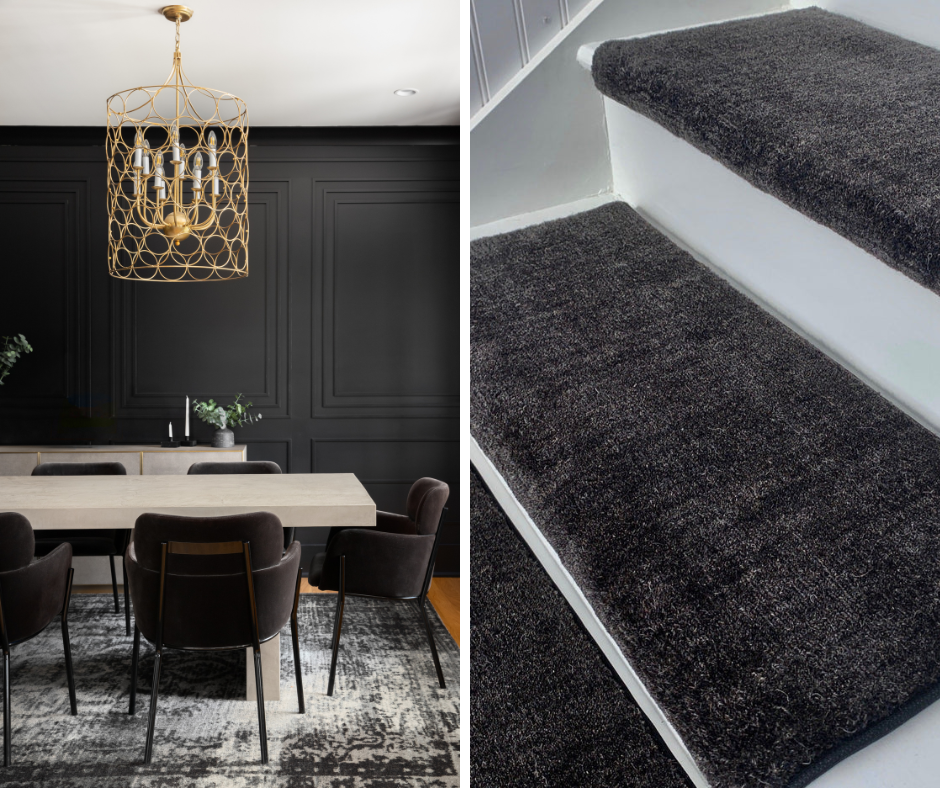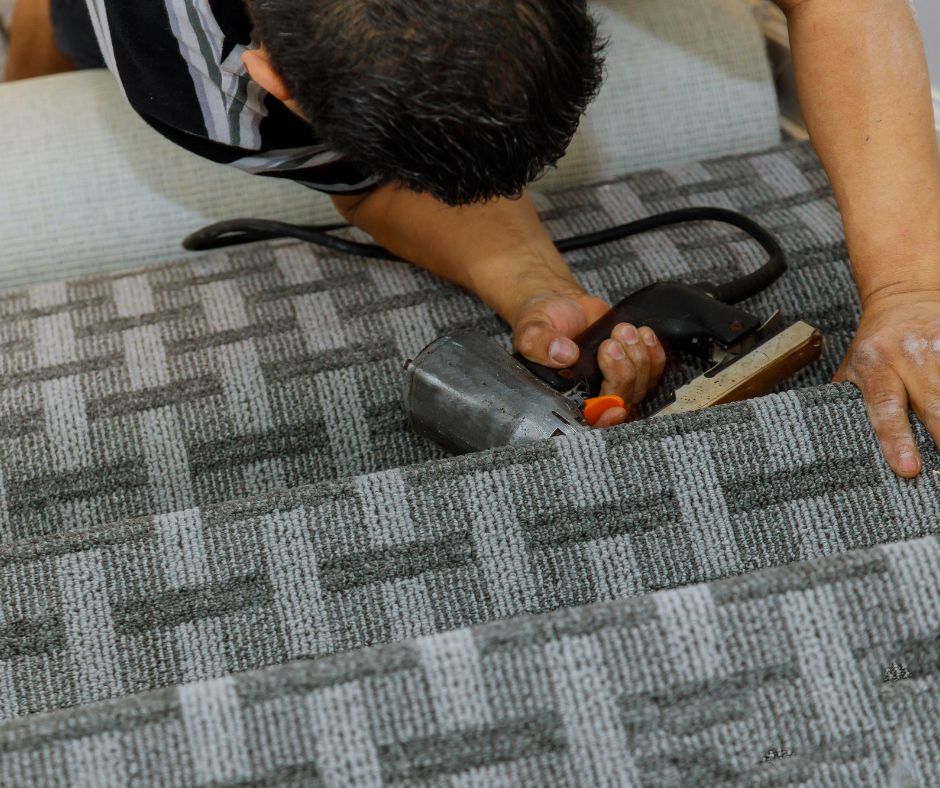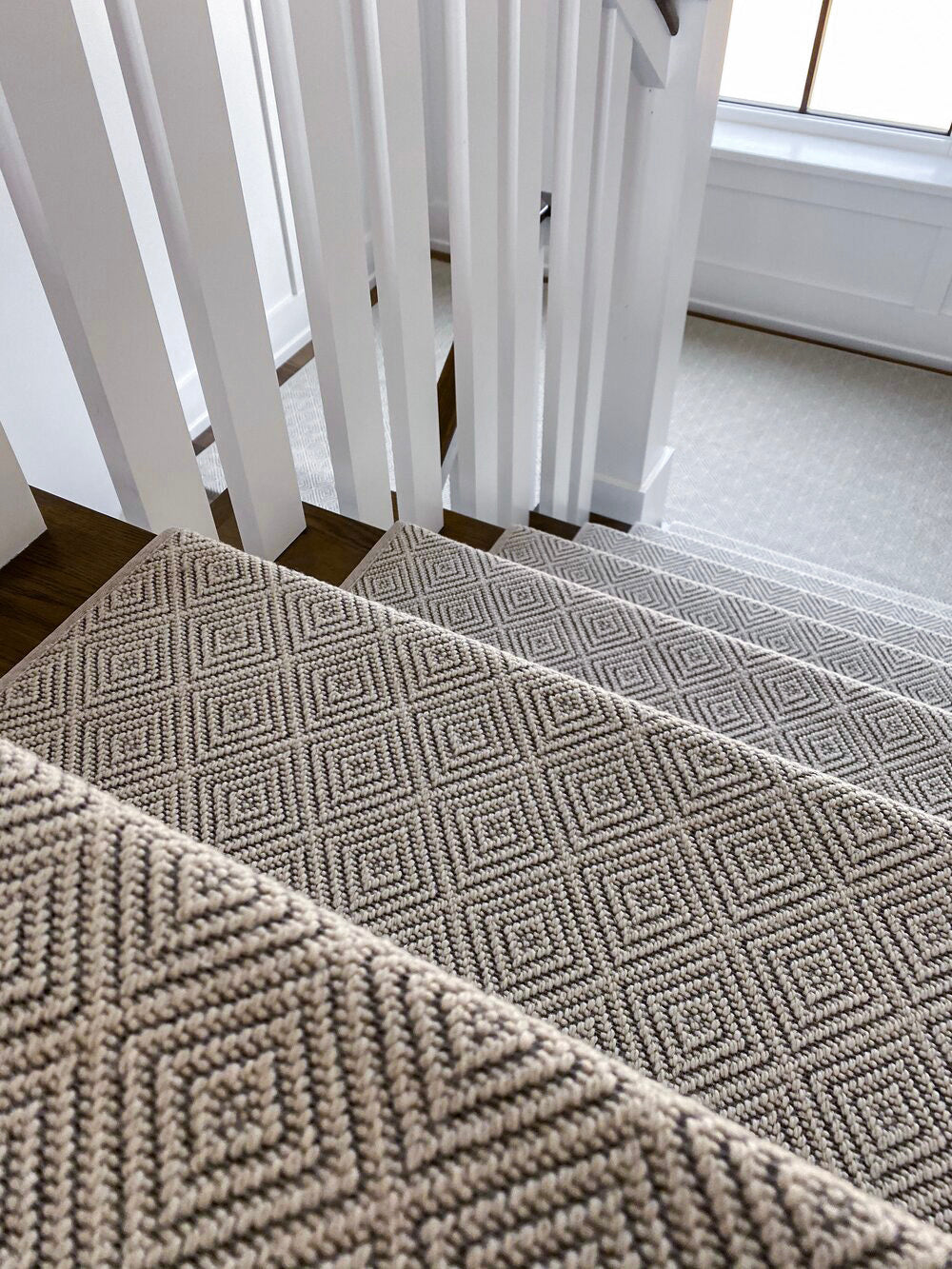Stair treads are essential for safety, comfort, and style, but choosing the right material can be overwhelming.
What material is best for stair treads?
Wool and nylon stand out as top choices due to their durability, slip resistance, and ease of maintenance, while other options like sisal, polyester, and polypropylene offer unique benefits based on budget and lifestyle needs.
Understanding the advantages and drawbacks of each material ensures you select the best fit for your home.
Whether you’re looking for carpet stair treads that enhance comfort or weather-resistant options for outdoor use, this guide will help you make an informed decision.
Keep reading to explore the pros and cons of natural and synthetic materials, along with expert recommendations for safety and longevity.
Why Stair Tread Material Matters
The right stair tread material enhances your home’s safety while complementing its aesthetic.
Here’s why choosing the right material is crucial:
-
Safety: The best stair tread materials provide traction and reduce the risk of slipping, especially on high-traffic stairs.
-
Durability: Some materials withstand wear and tear better than others, making them ideal for busy households.
-
Maintenance: Depending on the material, cleaning requirements and upkeep can vary significantly.
-
Aesthetics: Stair treads contribute to the overall look of your home, so selecting a material that matches your decor is important.
-
Cost: Some materials are more expensive but last longer, while others are budget-friendly but may need frequent replacement.
By understanding the strengths and weaknesses of different materials, you can make an informed choice that suits your home’s needs.
Natural Fiber Options for Stair Treads
Natural fiber stair treads are eco-friendly and stylish, offering a warm, organic look.
They are often chosen for their sustainability and ability to blend seamlessly into a variety of interior styles.
Wool
Wool is one of the best materials for stair treads due to its luxurious feel, durability, and natural flame resistance.
It is a top choice for homeowners who want a high-end, long-lasting solution.
-
Pros:
-
-
Soft and comfortable underfoot
-
Extremely durable and long-lasting
-
Naturally stain-resistant due to lanolin coating
-
Fire-resistant and eco-friendly
-
-
Cons:
-
-
More expensive than other materials
-
Requires professional cleaning for deep stains
-
Can absorb moisture if exposed to high humidity
-
Sisal
Sisal is a strong, eco-conscious material known for its durability.
It is often chosen for its natural, earthy look and ability to withstand heavy foot traffic.
However, it is not the most comfortable option for bare feet.
-
Pros:
-
-
Highly durable and long-lasting
-
Ideal for high-traffic areas
-
Made from renewable plant fibers
-
Adds a textured, organic feel to staircases
-
-
Cons:
-
-
Rough underfoot, which may not be ideal for some households
-
Prone to staining and water damage
-
Requires regular maintenance to prevent fraying
-
Jute
Jute is an affordable natural fiber that adds warmth and texture to staircases.
While it is softer than sisal, it is not as durable and requires more frequent replacement in high-traffic areas.
-
Pros:
-
-
Soft underfoot
-
Budget-friendly and easy to install
-
Environmentally friendly and biodegradable
-
-
Cons:
-
-
Less durable than wool or sisal
-
Prone to staining and water damage
-
Requires frequent maintenance to keep it in good condition
-
Synthetic Fiber Options for Stair Treads
Synthetic stair tread materials are designed for durability, ease of maintenance, and affordability.
They are great for busy households and areas with high foot traffic.
Nylon
Nylon is one of the most popular synthetic fibers for stair treads because of its durability and resistance to stains and moisture.
It is ideal for homes with children and pets.
-
Pros:
-
-
Highly durable and resilient
-
Stain-resistant and easy to clean
-
Comfortable underfoot
-
-
Cons:
-
-
Can fade with prolonged sun exposure
-
Can generate static electricity in dry environments
-
Polyester
Polyester is a budget-friendly option that resists fading and staining.
However, it is not as durable as nylon and may wear down more quickly in high-traffic areas.
-
Pros:
-
-
Affordable and easy to maintain
-
Resistant to fading from sunlight
-
Soft and comfortable underfoot
-
-
Cons:
-
-
Less durable than nylon
-
Can show signs of wear in high-traffic areas
-
Polypropylene
Polypropylene is an affordable and moisture-resistant synthetic fiber, making it an excellent choice for stair treads.
While it is not as soft as wool or nylon, it provides excellent durability.
-
Pros:
-
-
Highly resistant to moisture and stains
-
Budget-friendly and easy to clean
-
Available in various colors and styles
-
-
Cons:
-
-
Not as plush or soft as other options
-
Can appear less luxurious than wool or nylon
-
What Is the Best Material for Outdoor Stair Treads?
Outdoor stair treads require materials that can withstand exposure to rain, sun, and temperature changes.
-
Rubber Stair Treads: Rubber is slip-resistant, weatherproof, and durable, making it an excellent choice for outdoor use.
-
Metal Stair Treads: Aluminum and steel stair treads offer maximum durability and weather resistance. They are ideal for areas that experience heavy foot traffic and extreme weather conditions.
-
Composite Stair Treads: Composite materials made from wood and plastic are popular for outdoor stairs because they resist rot, insects, and moisture.
How to Choose the Best Material for Stair Treads
When selecting a stair tread material, consider the following:
-
Traffic Levels – High-traffic areas require durable materials like wool or nylon.
-
Maintenance Needs – If you prefer low-maintenance options, polyester and polypropylene are ideal.
-
Aesthetic Appeal – Natural fibers offer warmth and texture, while synthetic materials provide a modern, sleek look.
-
Budget – Wool and nylon are premium options, while jute, polyester, and polypropylene are more budget-friendly.
-
Safety Considerations – Slip-resistant materials are essential, especially for homes with pets and children.
Steps To Success
The best material for stair treads depends on your home’s unique needs.
Wool and nylon offer the best combination of durability and comfort, while sisal and jute provide natural, eco-friendly alternatives.
For budget-conscious homeowners, polyester and polypropylene offer practical, low-maintenance solutions.
If you’re wondering, what is the best material for outdoor stair treads?, rubber, metal, and composite materials provide excellent weather resistance and safety.
At Oak Valley Designs, we offer premium stair treads crafted with quality, safety, and style in mind.
Whether you need indoor or outdoor stair treads, we have options to suit your home’s needs.
Contact Us Today!
Contact us today to find the perfect stair tread solution for your space.
-
Website: https://oakvalleydesigns.com/
-
Phone: 706.331.0315
-
Email: info@oakvalleydesigns.com
-
Address: 30 River Ct SW Bldg E Cartersville, Ga 30120




